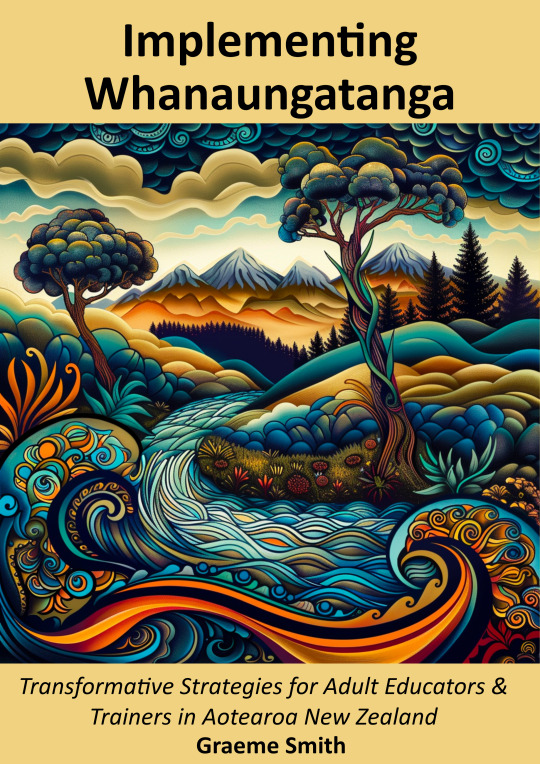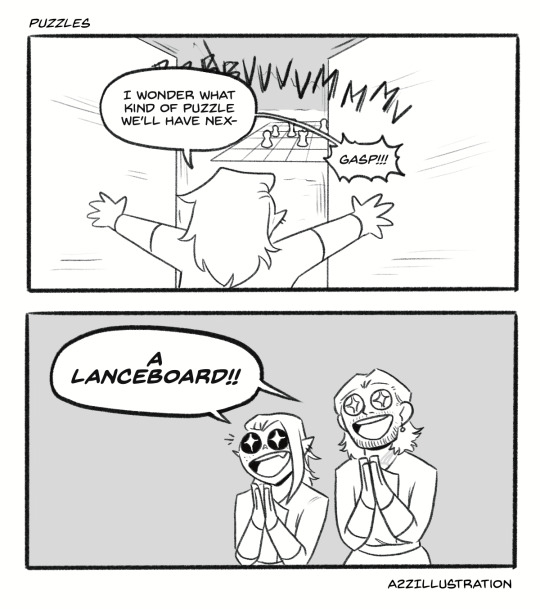#teaching strategies
Text
Liberal Education System
a Liberal based Education System has to take the rights of individuals’ into account. Rights like the freedom of religion and the freedom of speech. No student in a liberal education system maybe oppressed, prevent to speak their mind or prevent to serve their God. The educators has no right to tell a student that they may not express themselves or prevent them from reading their holy text or from praying to their God. They may however ask the student to respect others and their religion by practicing their faith softly. No educator may tell their student that their believes are false or encourage them to abandon their faith as this is in violation of their rights.
The main goal of education is to prepare a student to live with in society as a individual, and to reach their maximal potential as a individual according to their own God given talents. Its unacceptable in a Liberal system to fill the minds of children with political goal and/or agendas.
The system below is designed to firstly develop the physical mind to its God given capacity and then to prepare the student for society with out intruding on their religious rights and freedoms. The system is also designed for people with different types of intellect which means if the student do their part, they can not fail. The system is also designed that those with out money and chores at home will do just as well as those who has money and servants at home.
Follow the link to see the whole program from grade 1 -12 or K1 to K12
#liberalism#liberal#education#human rights#humanity#freedom of speech#freedom of religion#teaching strategies#teaching
2 notes
·
View notes
Text
Strategies for Improving Early Childhood Literacy
Some parents and educators believe it's best to let kids be kids for as long as they can. Why push them to grow up? Why force them into a rigid education structure before they're even out of diapers? We wholeheartedly agree. But we also believe helping kids to begin developing literacy skills during early childhood is a key to healthy development and success in their future schooling. Fortunately, developing literacy skills in your child doesn't mean you need to start teaching him to read right away. On the contrary, simply reading to your child twenty minutes a day is one of the most important literacy building activities you can do to prepare him to learn to read and succeed in school.
Did you know there are several "story time" strategies you can use, while reading to your child, to help him develop early literacy skills without him ever knowing? Try a few of the tricks below the next time you read with your child, and see if he doesn't start turning into a little bookworm right before your eyes.
Run your finger under each word
Running your finger under each word as you read starts developing literacy skills for small children in ways you might not even imagine. Reading and writing left to right, and top to bottom, doesn't come naturally to all young children. Running your finger under each word as you read helps children develop a sense of orientation. At first your child may not even notice what you're doing with your finger–but they will sooner or later. Then your child will start watching your finger, and as he does, he'll not only develop a sense of orientation for reading and writing, but he'll begin developing a concept of words, spacing between words and print. Before you know it, he will start running his finger under words as you read mimicking what he's seen you do, and he will begin pretending to read–a very big step toward early childhood literacy.
Focus on vocabulary
A child doesn't have to know how to read to build vocabulary. In fact, much of a child's vocabulary is acquired long before he starts to read. Having a well developed vocabulary is key to learning how to read down the road.
Developing a strong vocabulary at a young age helps children develop "background knowledge" that they'll draw on for future learning. Most parents, and even some educators, don't realize that the human brain–especially the brain of a child–learns by attaching new information to old information. If we can attach something new to something old, it is easier for us to understand it. Helping your child build background knowledge, by developing their vocabulary, will make it much easier for them to grow their vocabulary and learn to read when they start school. Did you know that children who enter kindergarten with a strong vocabulary are typically able to learn 8 new words per day, while children who struggle with vocabulary learn only 2 words per day? The stronger your child's vocabulary, the easier time he'll have learning how to read and comprehending what he's reading.
Use your story time to expand your child's vocabulary. Take time to point out important words. Use picture books to start developing associations between words and the objects and meanings they represent. As you read, discuss important words with your child that he may not know. Building your child's vocabulary at a young age will make it much easier for him when he starts learning to read.
Point out the punctuation
It may seem like pointing out punctuation to a four year old is going a bit far, but it really does make a difference in early childhood literacy. We're not recommending that you teach your child what a question mark, period or exclamation point is, we're simply suggesting that you point them out. Many adolescents as they begin to read struggle with punctuation. Believe it or not, punctuation is intimidating. Introducing your child to punctuation at an early age, while you read to him his favorite stories, will help him feel much more comfortable–and less intimidated–with punctuation when he starts reading on his own. Again, the idea is to build familiarity and comfort with punctuation while reading to your child, not teach them how to use punctuation.
A great way to point out punctuation while reading is to create a game out of it. For example, when you come to a question mark, let your child answer the question. When you come to an exclamation point, place exaggerated emphasis on the last few words in the sentence preceding the exclamation point. You can also vary your inflections based on different types of punctuation.
Read with voice inflections
It's been suggested that 93% percent of all communication is non-verbal (55% body language and 38% tone of voice.) The same holds true with ready. Meaning communicated through reading comes not only from the words themselves, but how the words are used. When reading with your infant or young child you should use voice inflections. Using voice inflections in your reading serves two purposes. First, voice inflections help children hear how reading should sound. They'll pick up on how you emphasize words and use voice inflections as they hear you use them. Second, using voice inflections as you read holds their attention and gets them excited about reading. It isn't necessary to exaggerate every word, but it is useful to use voice infection whenever appropriate.
Hunt for letters
If your child is a little older, doing a letter hunt with him from time to time is a great way to make story time fun while helping him begin to recognize and learn his letters. Teach your child a specific letter, like "A", or maybe use the first letter of his name "B" (for Brian) to make it interesting. Then have Brian search each page you read for the letter B. Count how many times he finds B on each page, then count how many times B appears in the story. Repeat this exercise for all the letters in the alphabet to improve your child's letter recognition and help lay a foundation for future success in reading.
Search for sight words
Being able to recognize and understand basic sight words is extremely helpful when it comes time to teach your child to read. The most common sight words found in most books include: a, of, the, and, is, in, it, you, to, that. Just like playing "hunt for letters", have your child count how many times he can find the sight word on each page, then count how many times the sight word appears in the story. Now go back and read each sentence that contains the sight word so he can hear and see how the word is used. Repeat this exercise for each sight word. Arriving at kindergarten the first day being able to recognize and understand basic sight words will give your child a big head start. (Note: If your child doesn't like this game, don't do it. This exercise will give your child a head start in reading, but isn't necessary–and may have the opposite effect if you push it.)
Ask your child to make a prediction
Before you start reading a new book, have your child look at the cover, read the title and possibly flip through a few pages to look at some pictures. Now ask your child to tell you what he thinks the book is going to be about. After you've finished reading the book, have your child tell you how close his prediction was to what the book was actually about. This exercise will help your child pay attention as you read and focus on comprehension as he hears the story and mentally compares the actual story to the version he predicted.
Check for comprehension
Reading comprehension is one of the most important skills school age children need to have. Unfortunately, it's also one of the areas where many children struggle the most throughout their elementary and high school careers. Focusing on comprehension at an early age will not only give your child a head start, it will help ensure that your child will be able develop the ready comprehension skills early that he'll need to succeed in school.
After you get done reading a story to your child, ask him a few questions to see how much he understood or remembers. If he is unable to answer a question, go back to the page where the answer is found and reread the page. Then ask the question again.
Read it again and again!
Reading the same book every day may seem a little bit tedious, but if it's a book your child enjoys, they'll love reading it again and again. Repetition is key to learning. It's not to say you can't, or shouldn't, switch it up a little, but reading from the same book regularly will enhance all of the learning strategies you're employing, enhance his vocabulary and make it much easier for him when he is required to start reading on his own. Read to your child from the same book every day, and in no time he'll start turning the pages when you come to the end of the text, correcting you when you make mistakes or change the story, and even pretend reading the book himself.
More important than developing early childhood literacy skills is helping your child learn to love books and enjoy learning. Focusing too much on skill development at a young age can have a negative effect, and cause your child to not like reading. Include some learning activities, games and exercises in your reading, but most of all, make sure that story time is a fun time for your child.
#teaching#teaching and learning#teaching strategies#methods of teaching#early childhood care#early childhood education#early childhood literacy#blog articles#daily blogs#teaching blogs
18 notes
·
View notes
Text
Transform Your Teaching: Implementing Whanaungatanga in Adult Education - A Must-Read eBook + Exclusive Bundle Offer
Implementing Whanaungatanga
In the heart of every educator and trainer lies the desire to make a difference, to transform learning environments into spaces where connections thrive, respect is mutual, and a sense of belonging is cultivated.
This mission, though noble, often encounters numerous challenges, especially in adult education settings across New Zealand.
What’s needed are strategies…

View On WordPress
#adult education#educational transformation#educator guide#Graeme Smith#Inclusive Education#learning environments#Maori cultural practices#New Zealand education#teaching strategies#thisisgraeme#training excellence#Whanaungatanga
0 notes
Text
Why Do Experts Recommend Positive Parenting to New Parents?
There is no shortage of parenting ideas and strategies when you search about parenting in Google. However, everything you see on the internet is not useful. Therefore, parents should listen to the parenting experts instead of trusting the random articles on the internet. Read more...
0 notes
Text
10 Fun and Fascinating Teaching Strategies for Kids
Are you looking for fun and effective ways to teach kids that will make learning enjoyable and engaging? Look no further! In this article, we will share with you 10 teaching strategies that are not only educational but also a lot of fun. From hands-on activities to interactive games, these strategies will help capture your children’s attention and make learning a memorable…

View On WordPress
#10 Fun and Fascinating Teaching Strategies#audiobooks or engaging in group discussions#collaborative learning#digital age#experiential learning#instruction#learning styles#storytelling and role-playing#strategies#Teaching Strategies#technology to incorporating art#visual aids
0 notes
Text
Fostering Independence in Students: A Guide for Teachers and Parents
youtube
#Education#StudentIndependence#parentingtips#teaching strategies#EmpowerStudents#lifeskills#IndependenceDevelopment#learningjourney#CollaborativeEducation#studentsuccess#ChildDevelopment#Empowerment#NurturingIndependence#TeacherTips#StudentGrowth#joyfuldaddy#Youtube
0 notes
Text
What Makes a Teacher Great? Exploring the Key Qualities of Exceptional Educators
What makes a teacher great?
Teachers play a vital role in shaping the minds and futures of students. While some teachers are good, there are a select few who are truly great. What sets these exceptional educators apart? In this comprehensive article, we will explore all aspects, angles, and perspectives that contribute to making a teacher great, backed by ample examples.
In the Hindu Vedas, a…

View On WordPress
#Adaptability#Classroom Culture#Continuous Learning#dailyprompt#dailyprompt-1985#Effective communication#empathy#Great Teachers#guru#mentorship#Passion for Teaching#shishya#Student Engagement#Teaching Strategies
0 notes
Text
Bloom's Taxonomy vs Solo Taxonomy: A Comparative Analysis
Understanding the key frameworks in education, such as Bloom's Taxonomy and Solo Taxonomy, is crucial for educators and learners alike. Bloom's Taxonomy, developed by Benjamin Bloom, offers a hierarchical model that categorizes learning objectives into six levels. These levels are:Read more.
#Affective domain#Analyzing#Bloom Taxonomy#Cognitive domain#Learning progression#Metacognition#Psychology#Self-assessment#Solo Taxonomy learning outcomes#SoloTaxonomy#Teaching strategies#Applying#Curriculum design#Evaluating#Instructional strategies#Philosophy#Professional development#Psychomotor domain#Remembering#Understanding#Bloom taxonomy levels#Bloom Taxonomy Domains#Domains of Bloom Taxonomy#Key Features and Applications of Bloom Taxonomy#Applications of Bloom Taxonomy#Why should we use Bloom Taxonomy?#Why should we not use Bloom Taxonomy?#Bloom taxonomy in education#cognitive training#cognitive behavioral therapy
0 notes
Text
Integrating Constructivist Teaching Strategies for First-Year Criminal Justice Students
Constructivist learning theory is a learning concept that students build knowledge based upon their prior knowledge and learning from the world around them (Hrynchak & Batty, 2012; Yoders, 2014).
Lev Vygotsky, John Dewey, and Jean Piaget are the main theorists in the development of constructivist learning (Hrynchak & Batty, 2012; Yoders, 2014). Constructivist learning is a good match for…

View On WordPress
#Andragogy#Collaborative Learning Theory#Constructivist learning theory#Criminal Justice Education#educational research#first year college students#Learning Theory#teaching strategies
0 notes
Text
Effective Strategies for Successful Learning
Maximize student learning outcomes with this comprehensive guide of effective teaching strategies and innovative techniques for educators
#Teaching strategies#Innovative techniques#Student engagement#Assessment and evaluation#Technology integration#Learning outcomes#Best practices in education
0 notes
Text

Gale and I had the exact same reaction when we opened that door.
| First | | Previous | | Next |
[[ All Croissant Adventures (chronological, desktop) ]]
[[ All Croissant Adventures (app) ]]
#this puzzle took me way too long bc I knew the answer but for some reason my brain thought the king could move in new and mysterious ways#It's been a hot minute since I've played chess and I was never very good at it lmao#It's canon that Croissant knows how to move the pieces but doesn't know any proper strategies#They would love for Gale to play with them and teach them more#bg3#baldur's gate 3#bg3 spoilers#act III spoilers#ansur quest#REMEMBER WHEN I SAID BLOCK THAT TAG IF YOU HAVEN'T DONE THIS YET?#THIS IS YOUR FINAL WARNING BEFORE THE BIG SPOILERS HAPPEN#croissant adventures#tav#gale#gale dekarios#gale x tav#breadweave#comics#WAIT I FORGOT there's gonna be a quick break in comics rn - I'll try to fill the gap with asks and other artwork#we'll be back on schedule on Monday!
696 notes
·
View notes
Text
Bored With the Classroom? Writing Outside with Structure and Purpose
If we want our students to engage with their senses, they need opportunities to connect with nature - or at least the outside world. For that reason, allowing students to write outside encourage a more genuine connection with the senses.
Recently, I was thinking about unique ways to get my students writing outside of the classroom. Often our students are stuck within the boundaries of four walls, which sometimes isn’t all that exciting to look at. Sure, posters and images of foreign landscapes might be inspiring, but nothing can replace authentic experiences.
If we want our students to engage with their senses, they need…

View On WordPress
1 note
·
View note
Text
Unlock the Doors to Educational Mastery with the Everything Bundle from THISISGRAEME – Limited Time Offer for $69!
Unlock limitless learning with the Everything Bundle! Over 50% off on diverse educational resources – perfect for teachers and learners alike. Limited offer at $69. Elevate your skills now! #EducationRevolution #SkillDevelopment 🚀
Kia ora koutou…!
Today, I’m beyond excited to share something extraordinary that’s been brewing behind the scenes.
It’s a special offer that encapsulates not just years of my work, but also my passion for transformative education and skill development.
Introducing the “Everything Bundle” – a curated collection that’s set to redefine your approach to teaching, learning, and personal…

View On WordPress
#Bundle Offer#Creative Skills#Curriculum Enhancement#Digital Learning#Discount Offer#E-learning#educational innovation#educational resources#Everything Bundle#Graeme Smith#learner engagement#Learning Tools#Lifelong learning#online education#personal growth#Professional Development#Skill Development#Special Promotion#Teacher Resources#teaching strategies#thisisgraeme#vocational training
0 notes
Text
0 notes
Link
Teacher Education refers to educating or training teachers to use proper teaching strategies, teaching methods, and teaching techniques for not only their professional development but also to achieve effectual academic outcomes and to shape future generations holistically. For this, teachers need to adopt strong teaching strategies and teaching methods to make genuine and empathetic relationships with individual students so that they can achieve good academic outcomes. Some major teaching strategies such as concise lesson targets, constructive questioning sessions, recognition and much more should be followed by teachers. Sometimes, teachers have difficulty teaching online. So, there are many platforms for teachers such as Classplus which offers digital infrastructure which will be beneficial for teachers to conduct online classes properly. The following link will help you to know more in detail about different teaching strategies and teaching methods as well.
0 notes
Text
jing yuan would be such a particular flavor of yandere, he really would stack every card against you. he'd destabilize you from a distance. some horrible circumstantial loss of your home, job, a hemorrhaging of a social circle you relied on. it is easier to pick up a stray when its both friendly and hungry.
jing yuan waits to swoop into your life. he orchestrates a number of interviews that fail, stressful night's out which end with you flinching at every shadow you see. once you're frayed and losing hope? then he will offer a hand. barely. he's the general, only what he could write off as proper. perhaps an afternoon cup of tea? he does like to know about the wellbeing of the denizens of the luofu. he has a garden he keeps, full of fat sparrows, he'd be happy to show you if you have time.
it's comfort he means to provide. he has stripped you of what little you had before. what remains is all fragments, hardly there, but good building blocks for what he'd like you to be. jing yuan knows this is cruel. he knows the game he is playing is at your expense, and he does not lie to himself about this fact.
jing yuan does hope, however, that perhaps you will be more content under his thumb. not as a card in his hand, a piece on a board, but a lover at his side when circumstance has left him alone and old. he thinks you'll like it, maybe. that you could if you only trusted him and never thought to hard about the events that led you to be perched so close to him, ensnared.
#lore loops#thirsts#jing yuan x reader#GENUINELLY scratching my head about this guy as a yandere#he is interesting#he tempers obsession with logic and strategy which makes Him Scary#also completely aware he could brute force it and has political power that makes him essentially infallible#but he'd much rather do this less messily#he'd rather break you down without using his own hands#its easier to teach you to love them if they haven't struck you before ya know#tw yandere
254 notes
·
View notes